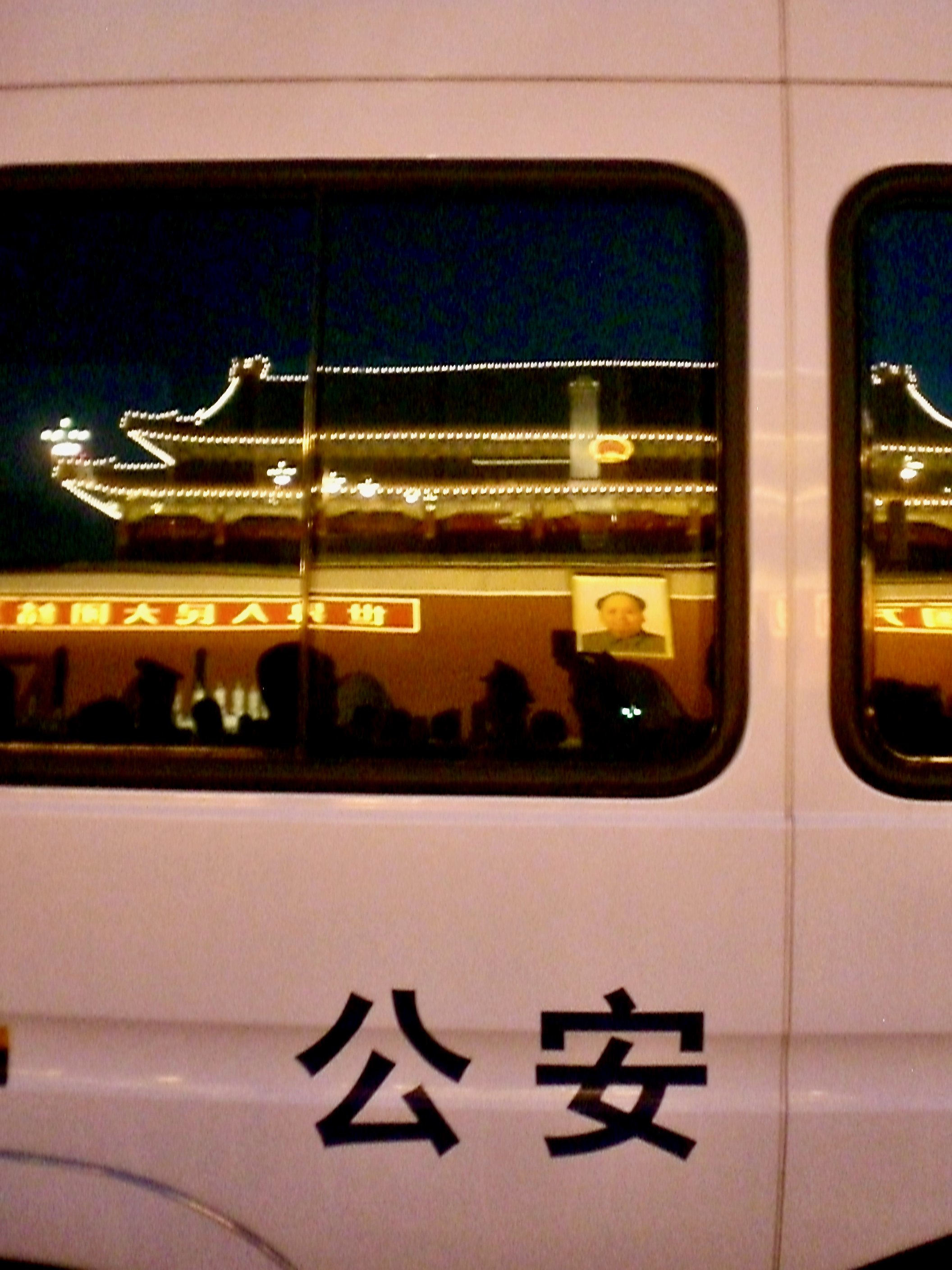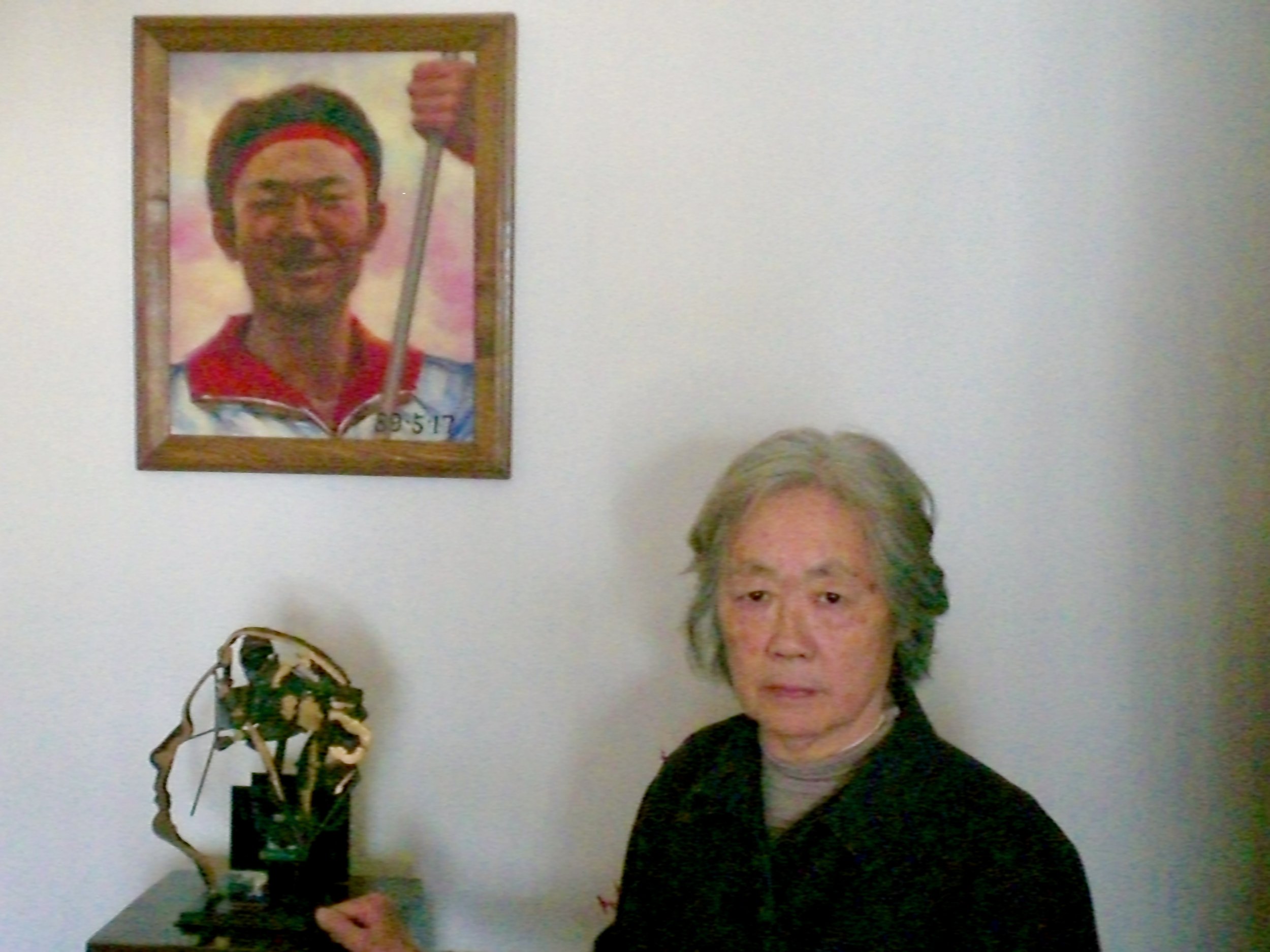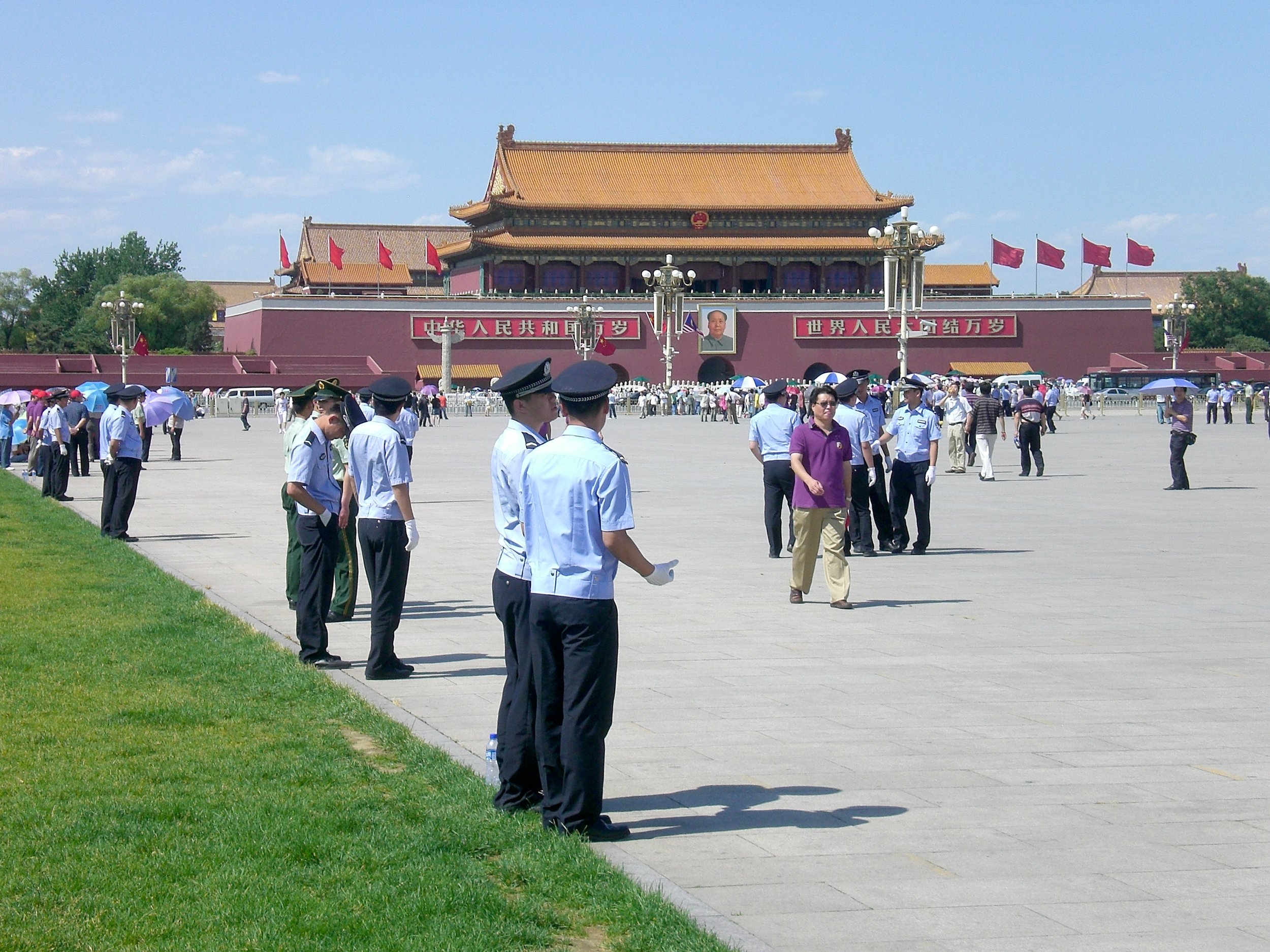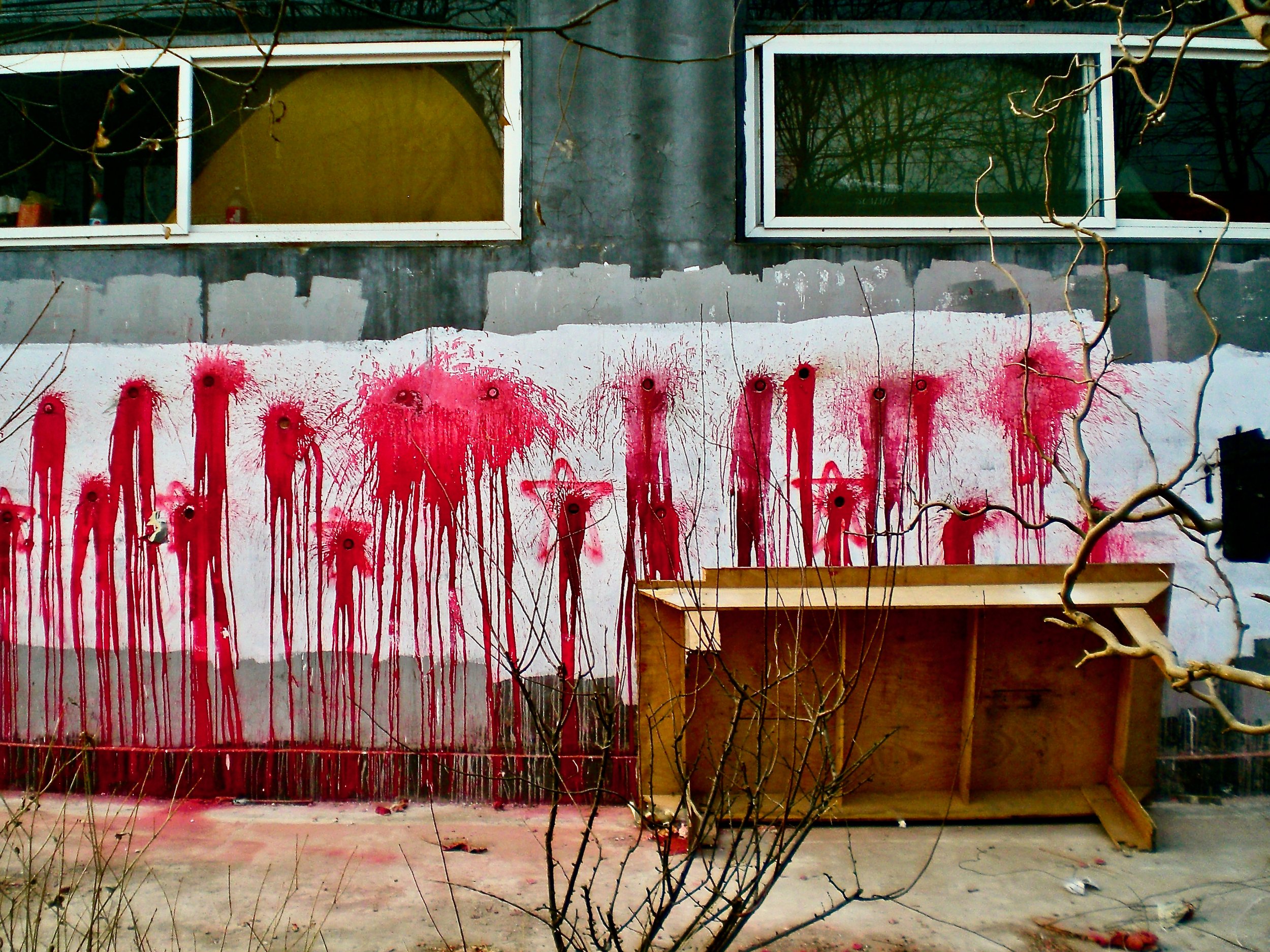
MY COUNTRY IS FAILING
Ding Zilin lost her son during the bloody 1989 crackdown on Tiananmen Square. Two decades on, she was still fighting for justice, demanding the Communist Party comes clean.
Jiang Jielan smiles daringly on the portrait in his parents' living room. Wrapped around his head is a red scarf, a sign of protest. His eyes have a challenging glare. He wears the red and white colors of his school uniform.
This is what the 17-year-old student, looked like during the 1989 protests on Tiananmen Square in the heart of Beijing. It cost him his life.
“Look here.” Jielan's mother Ding Zilin points to another wall in the room. “This is the very last photo taken of him.” The 73-year old woman lets out a deep sigh. The photo was taken on 3 June 1989, hours before Chinese authorities would order the army to wipe the streets clean of protestors.
On the photo, Jielan is in the first row of a big crowd. They are on their way to Tiananmen Square - the square of the Gate of Heavenly Peace. They want to show support for the students in the there, who are on a hunger strike to protest the absolute rule of the Communist Party.
Jielan and several others carry a big banner. 'We support you even until death', it says. A few hours after this photo was taken, Ding would see her son for the last time.

“Students had been protesting for a couple of weeks already,” Ding recounts from memory, sitting in the living room of the Beijing apartment where she and her husband live. “My son was incredibly curious. At nights, he would sneak out of the house to see what was going on in the city. Even by the time the streets were filled with soldiers and guns, he would still go out to witness it all.”
On the night of 3 June, Jielan planned to go out again. His parents told him no. The army was everywhere by now and the atmosphere in Beijing felt as if a violent outburst was close.
“My son was a very curious guy,” Ding, a retired philosophy professor, says in a soft voice. “He would never stop studying, always wanting to know more about the world around him. Whenever I would bring books home on philosophers or western society, he wanted to discuss them with me. I once brought a book by Plato I just couldn’t get through. Jielan finished it in one sitting.”
“We couldn't convince him to stay inside,” Ding says. “He told us: I have to go outside! I have to be there for my country. If all parents would be as selfish as you are, this country would get nowhere! Later that night, while we were sleeping, he broke a window and jumped on his bike.''

At the same time, tanks of the People's Liberation Army drove into the city. The authorities opened their attack on the protesting masses on and around Tiananmen Square. At least hundreds died. The exact numbers of casualties has never been published.
Jielan died too, that night, just one day after his 17th birthday. He was shot in the back. The bullet punctured his heart.
'In seventeen short years, you lived like a true man', reads the inscription his parents had engraved into a wooden pillar in their living room. Inside it are the ashes of their son. The text continues: 'Your feeling of human honor and integrity lives on in history, which never forgets.'
If it's up to the Communist Party however, history will be forgotten. Almost thirty years since the massacre on Tiananmen Square, the Party is still almighty. The authorities try everything to make sure the 'June 4 incident', as it is euphemistically referred to in China, will disappear from collective memory. The annual return of the date, however, still makes them nervous.
“A few weeks ago, I received a phone call from the police,” says Ding. “The officer reminded me that this year is an extra sensitive one and that I should not let myself be exploited by foreign media who want to hear the story of my son.”
Every five years since 1989, the former professor in philosophy notices the government keeps extra track of her. “They watch my home, tap my phone and mail. A while ago, someone broke into this apartment and stole notes I made for an article about the past thirty years.”

Before her son's death, Ding and her husband Jiang Peikun* worked at the prestigious Renmin University in Beijing. They were never activists. Ding was even a loyal, uncontroversial member of the Communist Party for 29 years.
Jielan's death crushed her. It destroyed her faith in the Party, which now had become her son's murderer. Two years after the massacre, she began to get in touch with other parents who had also lost a child on the Square.
Ding hasn't stopped since. She fights to make the authorities open up about what exactly happened on 4 June 1989. Her fight has already landed her in jail several times. Both she and her husband lost their positions at Renmin University.
In 2009, Ding published an open letter calling upon the Party to show courage and finally breach the secrecy around the 'June 4 incident'. The letter calls for an official investigation and compensation for the families of people who lost their lives. It is signed by 127 women who collectively call themselves 'Mothers of Tiananmen Square'.
“The government lacks the courage to respond,” Ding knows beforehand. She walks over to her bedroom, where she keeps the last family photo that was taken of Jielan and his parents. At 1.82 meters tall, he easily rests his arms on the shoulders of his mom and dad. His face has a solemn look.
Ding stares at the photo. “My country is failing,” she says. “My son died for the future of China. Now, I am dedicating my own life for that future. I have become an activist out of love for my son. I want the facts about what happened. By now, like him I too am no longer afraid to die for the cause of freedom.”
*Jiang Peikun died in 2015.
This story was published, in Dutch, in HUMO magazine in Belgium: https://www.humo.be/actua/25070/20-jaar-na-het-bloedbad-van-tiananmen-bij-de-dood-van-jielian-17